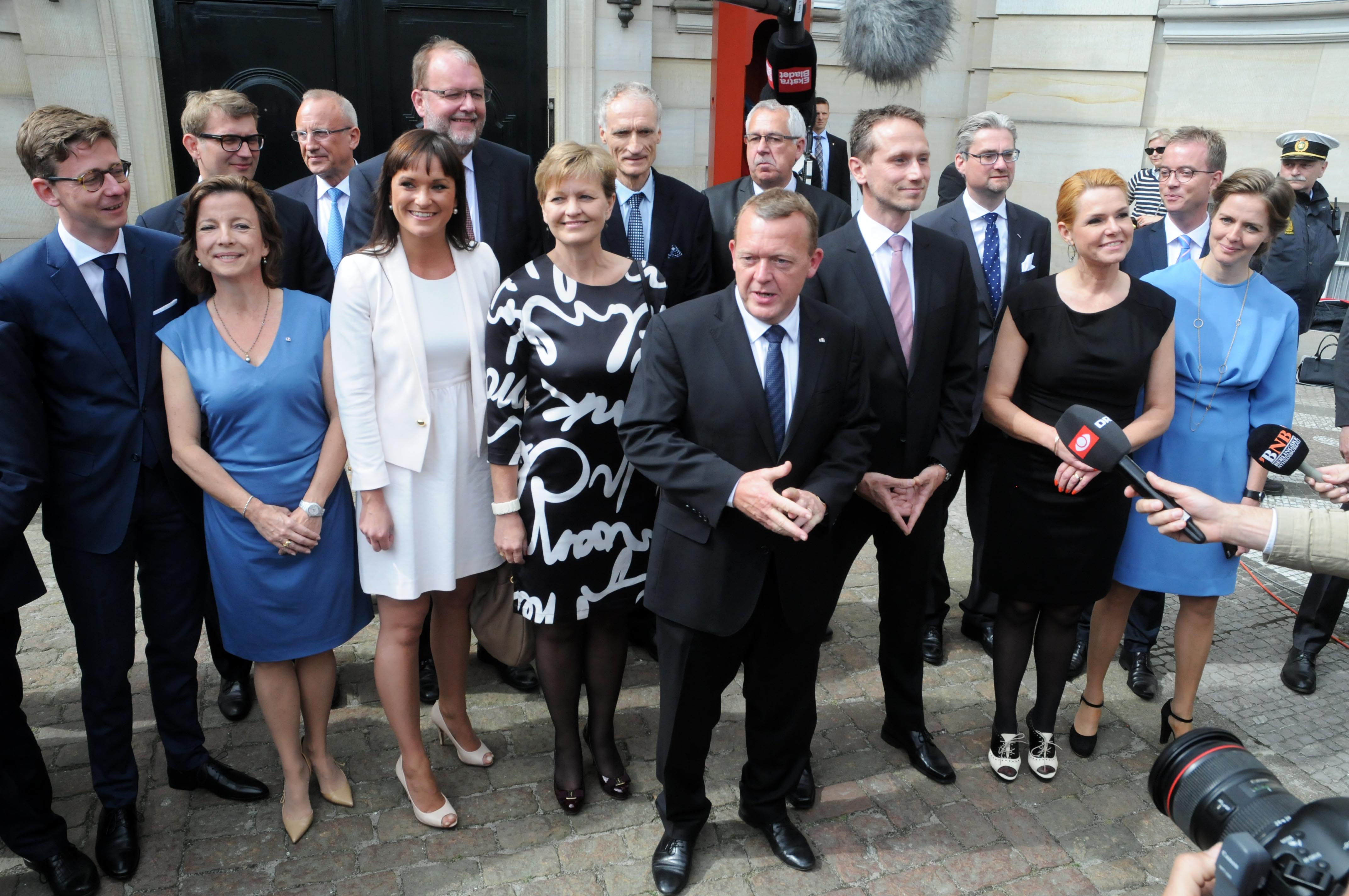The Danish general election is approaching. Next week the Danes are going to the polls to cast their votes. We have created a small guide to give you an overview of what will be happening and what to look out for.
Pre November 1: Politics as usual or revolution ahead?
The Danish political landscape has changed significantly since the last general election in 2019.
Following his defeat, the former PM Lars Løkke Ramussen stepped down as the leader of right-wing Venstre to form a new centrist party called Moderaterne. Its aim is to encourage a government coalition down the middle. Since the 1970s, Danish politics has been somewhat clustered in so-called bloc politics: the red and the blue blocs.
The party is set to gain a big chunk of mandates. In the latest polls, it was on course for 11 percent. It is believed that many Venstre voters have left the party to support the former prime minister with his goal. Rasmussen hasn’t officially put himself up for the top job, therefore officially leaving the current PM Mette Frederiksen, Venstre leader Jakob Ellemann-Jensen and Konservative leader Søren Pape Poulsen as the candidates. Nonetheless, rumours are spreading that Rasmussen could become PM anyway.
November 1: What to look out for?
Tuesday, November 1 is election day: as a recent Voxmeter poll suggests (see below), it could be a tight race.
On election day itself, look out for the first exit polls, as there is a good likelihood that these results will stay the same with a relatively small margin for error. These exit polls are often released during voting.
Post November 1: What’s likely to happen
Wake up on November 2, we will probably know which parties have exceeded expectations and how this will effect the strength of the red and blue blocs.
Nevertheless, regardless of this, the party with the most votes, which is likely to be Socialdemokratiet, will have first dibs at trying to reach 90 mandates. In 2015, it failed due to a lack of support, leaving Venstre free to form a government, even though it only finished third in the polls. But in 2019, with the help of its red bloc allies, it comfortably had command of a majority.
However, this time around, it’s questionable whether it would want to include Radikale in a majority, and whether it has enough mandates without the support of Moderaterne. Should Lars Løkke Rasmussen be interested in joining Socialdemokratiet, it’s then questionable whether he would also join all of her red bloc allies, or only the centre-leading ones, such as SF. This could leave the door open for a centre-leaning blue bloc party to join the majority – Venstre or even Liberal Alliance. But who knows: maybe Frederiksen and Rasmussen won’t be able to agree, leaving the door open for Venstre to try and form a majority.
Dansk Folkeparti struggling to gain representation
The far right party Dansk Folkeparti looks set to score a terrible result. In 2015 with 21 percent, it was the second-biggest party in Parliament, but now it is fighting to acquire the 2 percent threshold needed to obtain seats in Parliament. Much will depend on its support among the elderly.
Is Danmarksdemokraterne the new far right party?
Dansk Folkeparti has lot a fair share of vote following the emergence of Inger Støjberg’s right-wing party Danmarksdemokraterne. Støjberg, the former minister of immigration and integration, was late last year kicked out of Venstre, of which she was the deputy leader, and found unworthy to keep her seat in Parliament. She then stood trial for an illegal order she gave as minister to separate asylum-seeker couples should one of them be under the age of 18 years old. The Supreme Court in December sentenced to her two months in custody, which she served at home earlier this year. Following her release, she founded Danmarksdemokraterne.
Liberal Alliance stronger than ever
The liberal party Liberal Alliance only won 2.3 percent in the last election in 2019, but now with the use of social media and smart campaign strategies, especially on TikTok, it is on the charge and has tripled its support. People have been queueing for hours to get to shake LA leader Alex Vanopslagh’s hand and take a picture with him. The party is polling at 7.3 percent.
Venstre support halved, but still blue bloc leaders
Following the founding of Moderaterne and Danmarksdemokraterne by two former prominent members of the party, Venstre is set to lose big this election. The latest polls suggest it will be likely to win half of the 23.4 percent it won in 2019. This drop would have big repercussions, although Venstre will most likely cling onto its role as the leading blue bloc party after Konservative’s dramatic collapse.
How Radikale’s strategy backfired
Radikale forced the elections by threatening a vote of no-confidence. The elections are here now, but the public didn’t seem to like the way the party handled the situation. The latest polls suggest a loss of almost 5 percentage points, which will take them down to 3.8 percent. It’s believed voters have wandered over to Moderaterne, underlining Lars Løkke Rasmussen’s status as the kingmaker in this year’s election – a job Radikale used to relish in the 1980 and 90s before Dansk Folkeparti took over.















